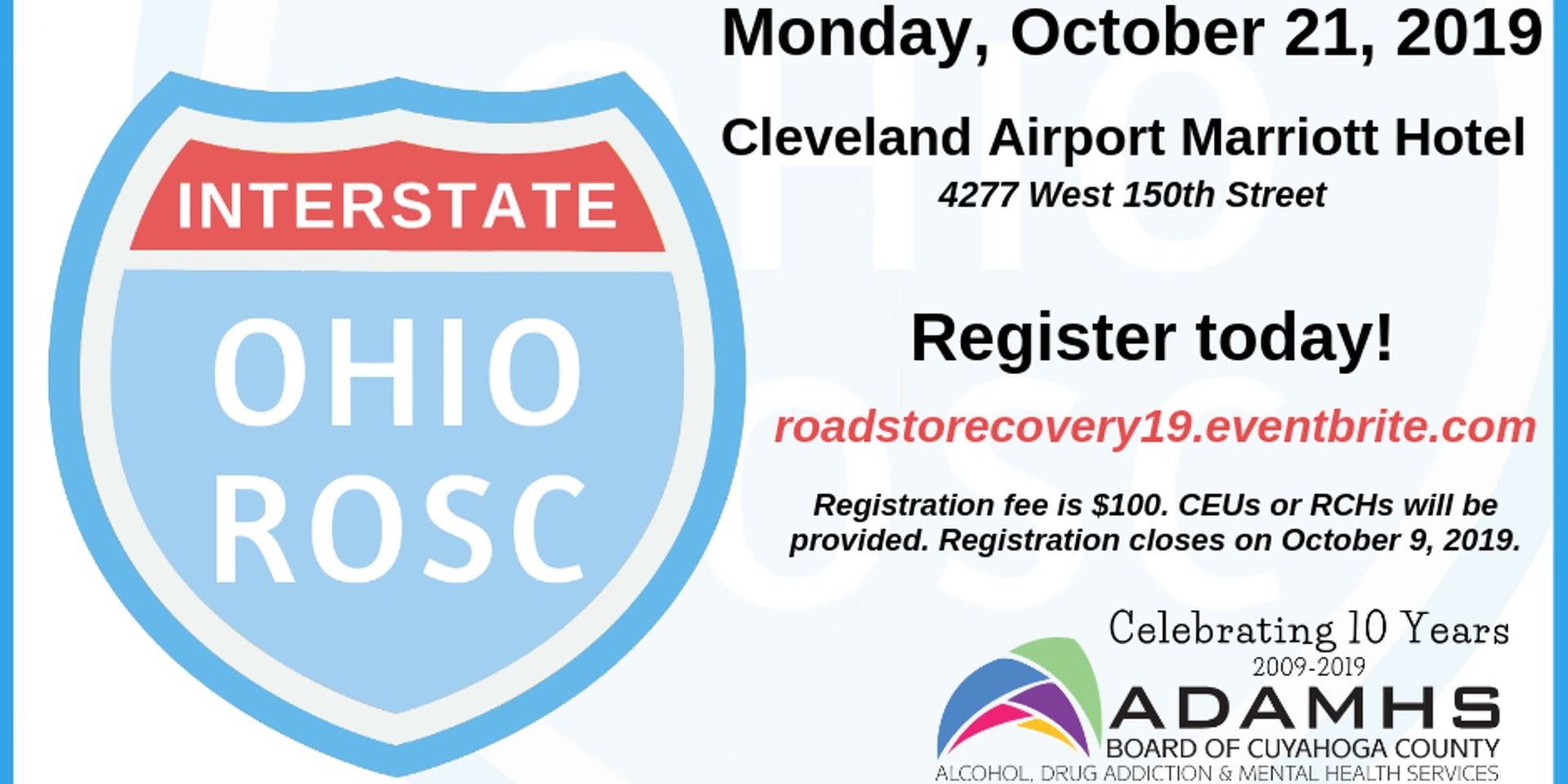Check your maps and make your way to Roads to Recovery ’19: Navigating Person-Centered Care…Recovery, Resiliency and Beyond This conference will be held Monday, October 21, 2019, at the Cleveland Airport Marriott Hotel at West 150th Street and I-71, in Cleveland, Ohio.
Who Should Attend?
The Roads to Recovery ’19: Navigating Person-Centered Care…Recovery, Resiliency and Beyond agenda offers a variety of information and inspiration for everyone, especially as Ohio is in its transformation to a Recovery Oriented System of Care:
• Individuals in recovery and/or living with mental illness and/or addictions.
• Family members and friends of people living with mental illnesses and/or addictions.
• Mental health and addiction prevention, treatment and recovery support providers; social workers; counselors; RN/LPN’s, psychologists; psychiatrists and students.
The Roads to Recovery ’19: Navigating Person-Centered Care…Recovery, Resiliency and Beyond agenda offers a variety of information and inspiration for everyone, especially as Ohio is in its transformation to a Recovery Oriented System of Care:
• Individuals in recovery and/or living with mental illness and/or addictions.
• Family members and friends of people living with mental illnesses and/or addictions.
• Mental health and addiction prevention, treatment and recovery support providers; social workers; counselors; RN/LPN’s, psychologists; psychiatrists and students.
What Will You Learn?
The agenda is full of presentations to help in real-life situations that an individual in recovery, advocate, family member and/or provider may encounter on the road to recovery, including addictions, spirituality, roles of peer supporters, dealing with difficult behavior, mindfulness, breaking down barriers, art therapy and trauma informed care.
The agenda is full of presentations to help in real-life situations that an individual in recovery, advocate, family member and/or provider may encounter on the road to recovery, including addictions, spirituality, roles of peer supporters, dealing with difficult behavior, mindfulness, breaking down barriers, art therapy and trauma informed care.
Speakers include nationally, statewide and locally recognized speakers such as:
Dakota L. King-White, Ph.D., PC, LPSC is an Assistant Professor of Counseling and School Counseling Coordinator with Cleveland State University. She has published work on a variety of topics, including trauma and working with youth in schools. In 2018, she was named a Crain’s Cleveland Business Top Forty Under 40.
Dakota L. King-White, Ph.D., PC, LPSC is an Assistant Professor of Counseling and School Counseling Coordinator with Cleveland State University. She has published work on a variety of topics, including trauma and working with youth in schools. In 2018, she was named a Crain’s Cleveland Business Top Forty Under 40.
Improbable Players is a theater prevention group new to Cleveland. The organization has been in Boston and New York for decades. Improbable Players uses theater performances and workshops to address addiction, alcoholism and the opioid epidemic. All of their programs are aligned to Health and Social Emotional Learning curriculum frameworks and all of the actors are in recovery. The troupe is led by Karen Snyder, the Ohio Regional Director of Improbable Players.
The Keynote Address, Plenary Session, Special Institute Sessions and Workshops support these overall conference goals:
Illustrating successful mental health and addiction recovery models and best practices.
Practicing successful mental health and addiction treatment approaches for individuals and professionals.
Describing how to establish trusting relationships among individuals, family members, and providers to foster recovery.
Demonstrating that personal recovery from mental illness and addiction is possible.
Illustrating successful mental health and addiction recovery models and best practices.
Practicing successful mental health and addiction treatment approaches for individuals and professionals.
Describing how to establish trusting relationships among individuals, family members, and providers to foster recovery.
Demonstrating that personal recovery from mental illness and addiction is possible.



